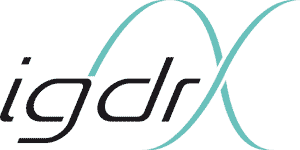Deep-learning based analysis of microtubule network in cells
| ABG-133269 | Stage master 2 / Ingénieur | 6 mois | 659,76 € brut mensuel |
| 01/09/2025 |

- Informatique
- Biologie
- Biotechnologie
Établissement recruteur
Site web :
Host laboratory:
The internship will be carried out within the Rennes Institute of Genetics and Development (IGDR, UMR 6290), and more specifically in the CeDRE team "Reverse Engineering of the Cell Division". Our team – which has the specificity of being an interdisciplinary team made up of specialists in biology, physics, image analysis, artificial intelligence and bioinformatics – studies cell division robustness using a cell biophysical approach. For this, we use the first division of the Caenorhabditis elegans nematode, an established model of cell division, and then validate our findings in Human cells. We aim to understand the robustness of cell division by studying and modelling the biophysical and mechanical interactions between the molecular actors of mitosis, which are the microtubules and their regulators, as well as the molecular motors.
Description
Internship project:
Astral microtubules are dynamic and semi-flexible fibres. Their dynamics were studied in vivo, which revealed their major role in cell division, and in particular concerning astral microtubules in the correct positioning of the mitotic spindle [1-2]. In contrast, the mechanical characteristics of microtubules in vivo are not well known, and their contribution to cell division remains to be identified. Microtubule curvatures can serve as proxy for revealing perturbations in microtubule rigidity. The team as already developed a Deep-learning-based tool capable of segmenting curvilinear structures, including microtubules, in noisy 2D images. For that we build a U-Net architecture that combines residual networks and attention mechanisms [3]. In the present internship, we aim add developing a similar tool that will succeed to segment microtubules in 3D images, and even to go one step further by directly extracting microtubule curvatures. By developing deep-learning based tools for 3D microscopy data, the student will help understand how changes in microtubule rigidity influence cell division, while gaining hands-on experience in designing and applying state-of-theart deep-learning methods for complex biomedical image analysis.
References:
[1] Bouvrais, H., et al., Biophysical Journal, 2018. 115(11): p. 2189- 2205.
[2] Bouvrais, H., et al., EMBO reports, 2021. 22(5): p. e50770.
[3] Ait Laydi, A., et al., arXiv preprint arXiv:2507.07800, 2025
Duration: From 2 to 6 months
Period: Between January and July 2026.
Contact:
Dr Sidi Mohamed Sid’El Moctar (post-doctoral fellow)
Dr Hélène Bouvrais (CNRS Researcher)
Web site: https://igdr.univ-rennes.fr/en/cedre-lab
Profil
Skills:
- Required: Solid programming skills in Python; Basic understanding of deep learning architectures (e.g., CNNs, U-Net).
- Preferred: Interest in biological applications and ability to work in an interdisciplinary environment; Knowledge in image analysis.
Skills that will be acquired: Image analysis, deep-learning, microscopy, Improvement in English, teamwork skills.
Prise de fonction
Vous avez déjà un compte ?
Nouvel utilisateur ?
Vous souhaitez recevoir nos infolettres ?
Découvrez nos adhérents
 SUEZ
SUEZ  Aérocentre, Pôle d'excellence régional
Aérocentre, Pôle d'excellence régional  PhDOOC
PhDOOC  MabDesign
MabDesign  Tecknowmetrix
Tecknowmetrix  Généthon
Généthon  CESI
CESI  Laboratoire National de Métrologie et d'Essais - LNE
Laboratoire National de Métrologie et d'Essais - LNE  MabDesign
MabDesign  ONERA - The French Aerospace Lab
ONERA - The French Aerospace Lab  TotalEnergies
TotalEnergies  Nokia Bell Labs France
Nokia Bell Labs France  CASDEN
CASDEN  Institut Sup'biotech de Paris
Institut Sup'biotech de Paris  ADEME
ADEME  Ifremer
Ifremer  Groupe AFNOR - Association française de normalisation
Groupe AFNOR - Association française de normalisation  ANRT
ANRT  ASNR - Autorité de sûreté nucléaire et de radioprotection - Siège
ASNR - Autorité de sûreté nucléaire et de radioprotection - Siège

